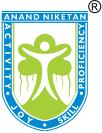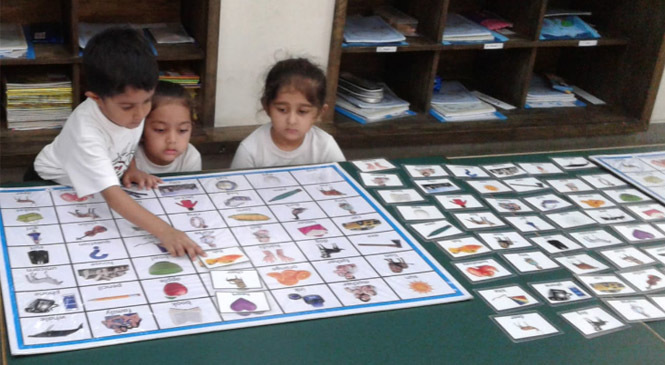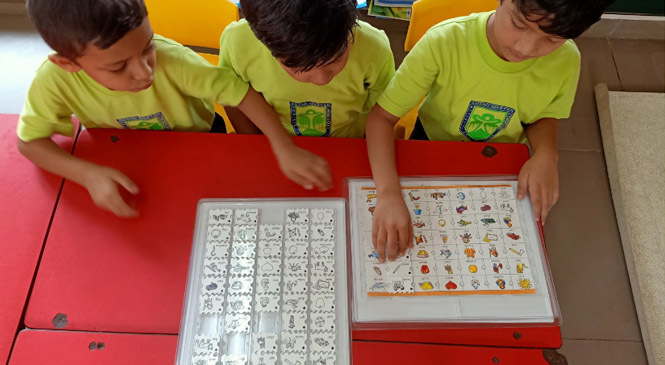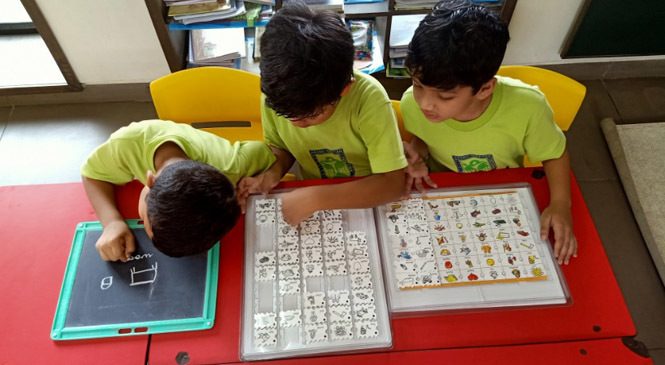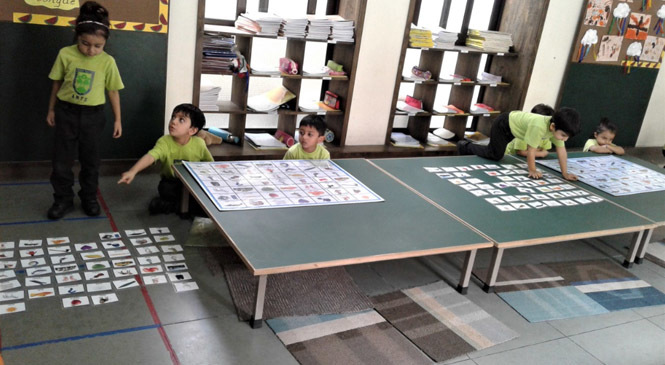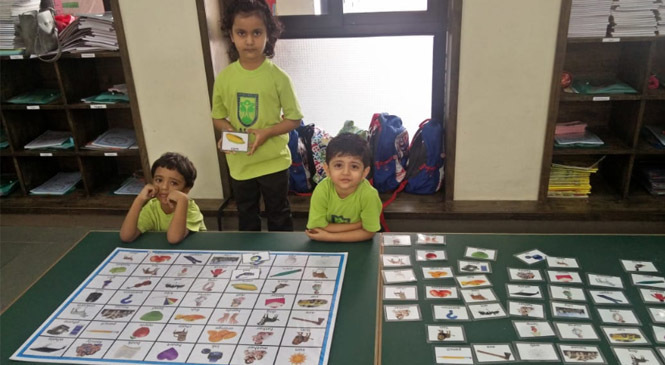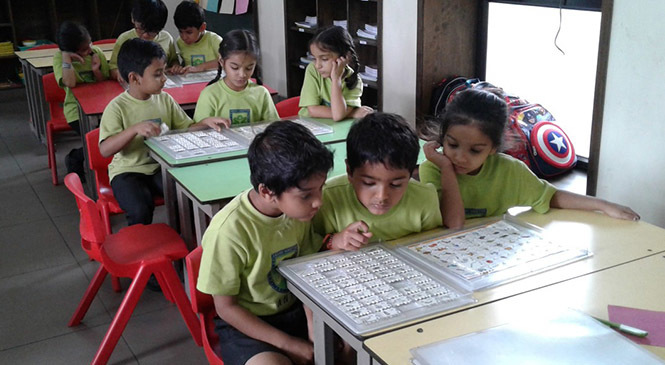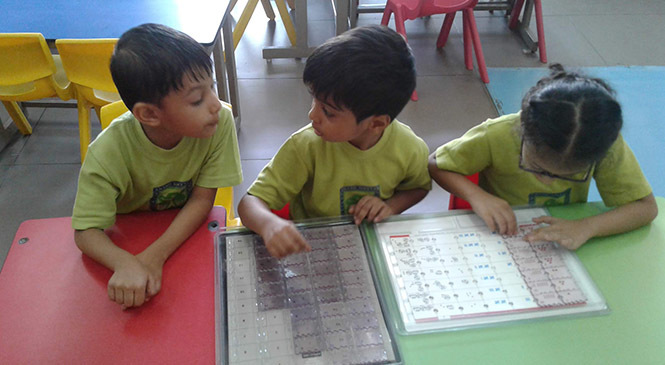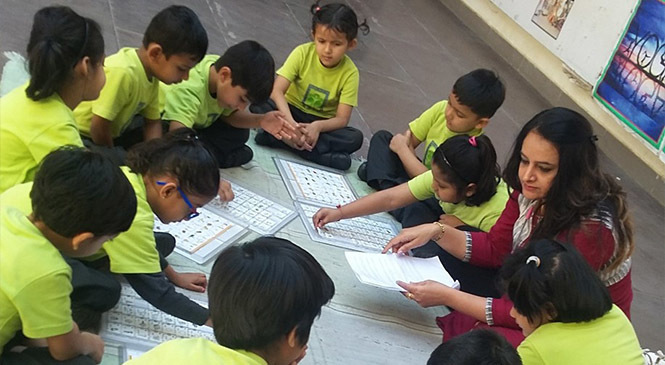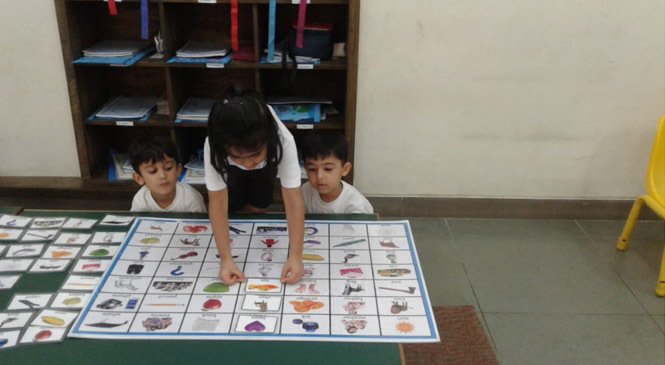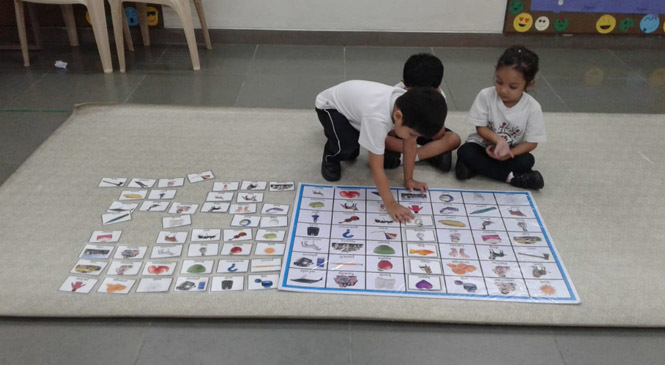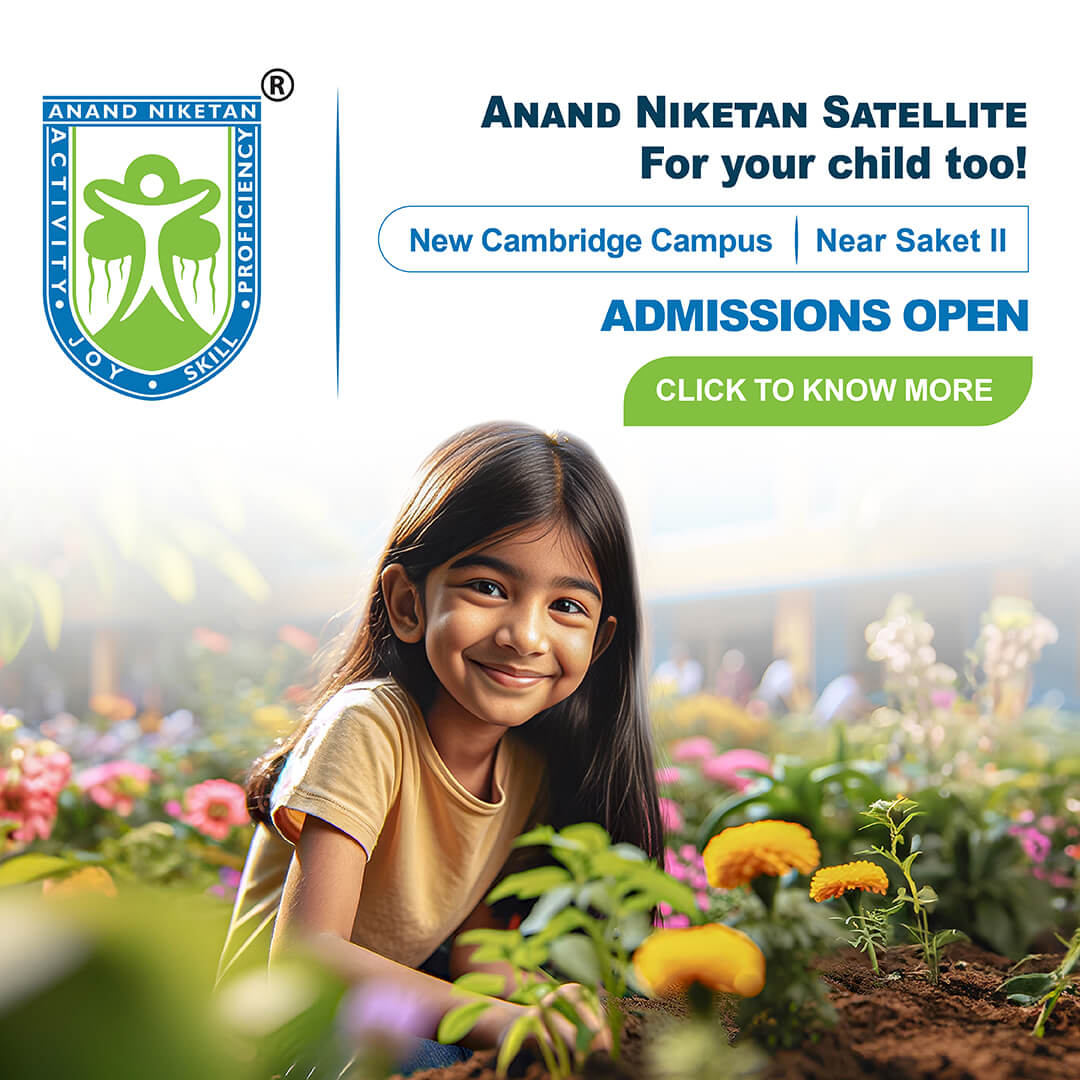LEMA board game
LEMA in Lime Light
"Play builds the kind of free-and-easy, try-it-out, do-it-yourself character that our future needs."
LEMA - The Literacy Education and Math Lab (designed by Javier González Quintero 30 years ago) seeks to develop, support, remediate/accelerate the acquisition of listening, speaking, reading, writing and math as fundamental tools for lifelong learning in children. It has its roots in the pedagogical models developed by Javier González Quintero, who sees play as a powerful learning tool that not only provides intrinsic motivation but also returns the control of the learning process to the learner. It is based on the four pillars of education: Learning to do, Learning to live together, learning to learn and learning to be. On going self-assessment is an integral part of the process and "errors" are opportunities to learn, rather than examples of "personal failure".
At Joeys Ambli Campus we have "Learning Coaches" (trained by Ms. Catalina Gonzalez) who are efficient enough to run the lab with various strategies. The methodology is based on board games that make learning fun, effective and easy to replicate. These labs develop children’s ability to work effectively in smaller groups (peer to peer learning), to think critically, visual perception, manual dexterity, to communicate verbally and through writing, to read and comprehend which are efficient tools for lifelong learning(social skills). It incorporates the three most critical elements that make humans “human”: the brain, the hands and the heart. It is a fundamental part of the development of inductive and deductive reasoning.
We have incorporated these board games into our regular routine since 4 years and have seen its multi-fold benefits like :
It creates conducive environment in which children can study their own learning processes and habits.
With this game being introduced in the classrooms, our children have been making connections to the real world situations and apply their background academic knowledge in classroom situations/ discussions and validate each other's understanding.
Learners are encouraged to explore, discover, develop and test hypotheses; making learning relevant. Moreover Group play encourages relationship building and helps to promote the development of social and communication skills. It also allows and encourages peer-to-peer learning, changing the power dynamics of the traditional classroom. Hence, these board games have helped children to find creative solutions to everyday problems with a strong sense of self efficiency and resilience to overcome challenges, the capacity to work with others, reach agreements, collaborate. These skills are an intrinsic part of play and thus, without play, we can’t develop the skills the world needs today. "Play is not only the brain's favourite way of learning, but almost all creativity involves purposeful play."


